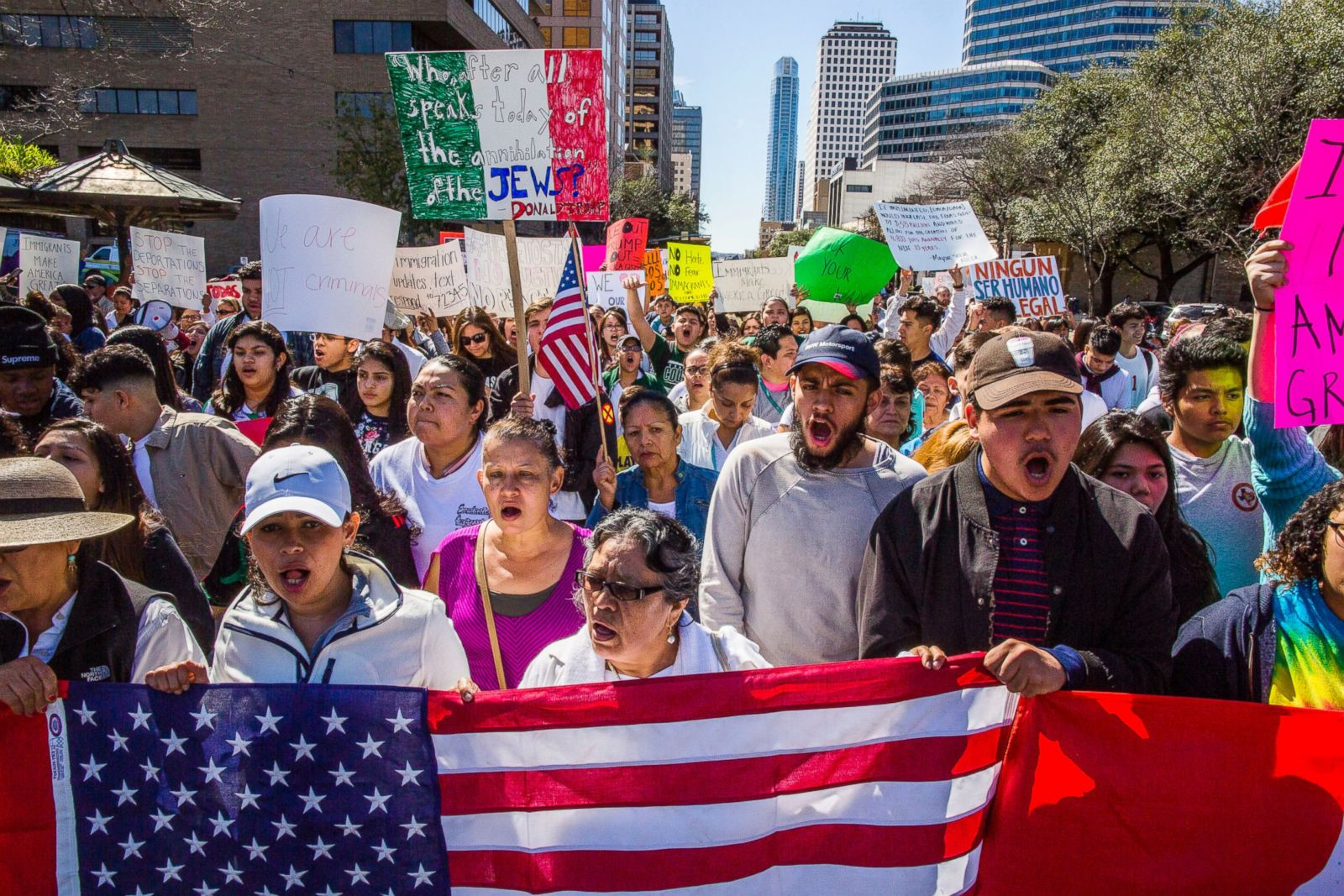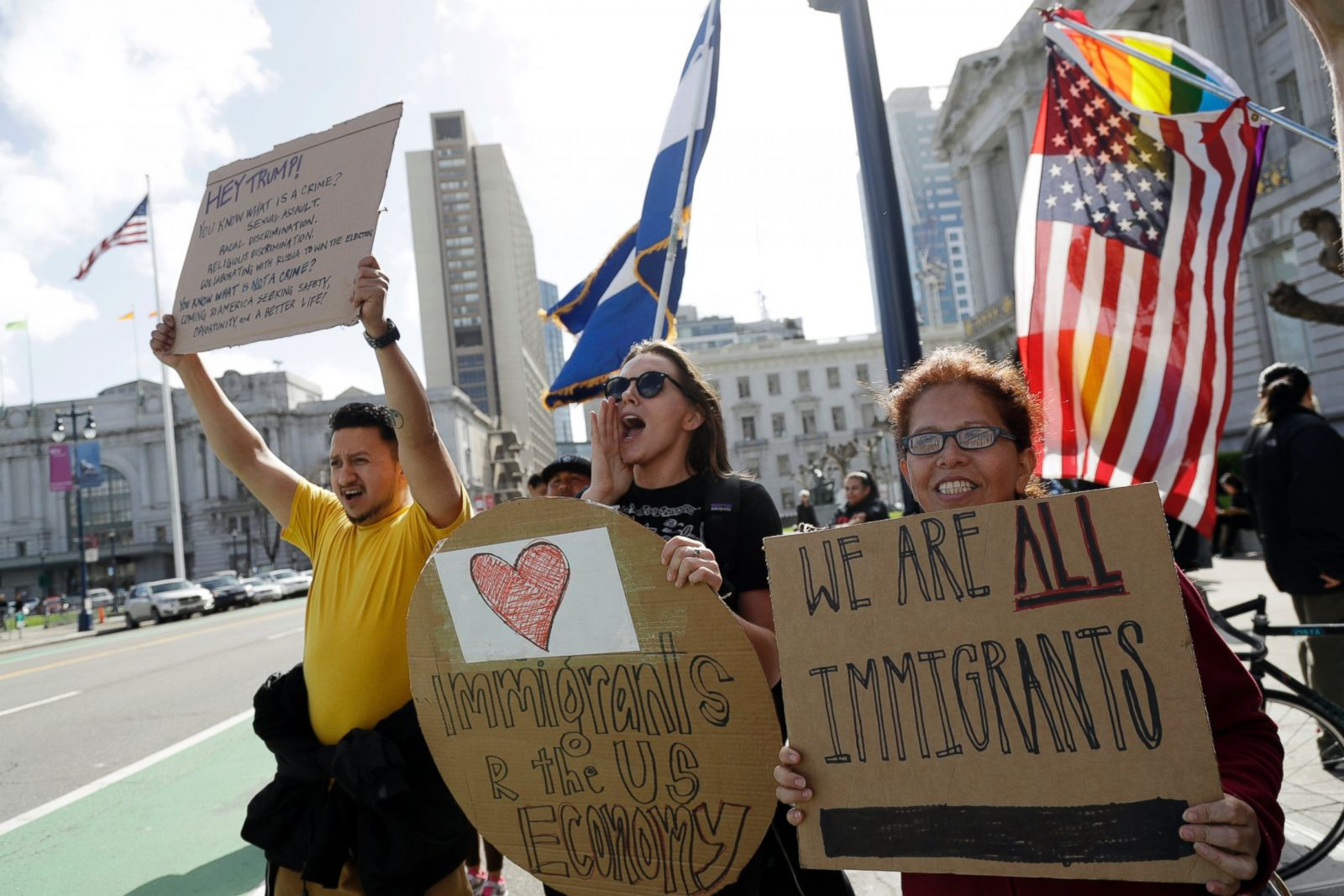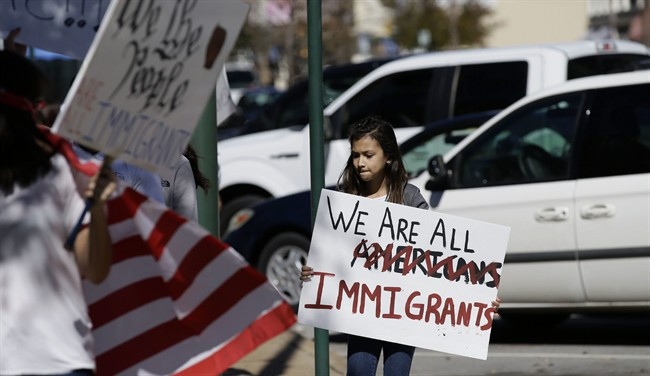A Day Without Immigrants: A Nationwide Show of Solidarity
On Monday, February 3rd, 2025, a significant event unfolded across the United States – “A Day Without Immigrants.” This impactful protest saw numerous businesses close their doors and workers stay home, aiming to demonstrate the vital contributions of immigrants to the nation's economy and society. The movement, fueled by social media and concerns over stricter immigration enforcement, gained momentum as immigration operations intensified in cities nationwide. This wasn't just a one-off; similar protests have occurred before, demonstrating the ongoing significance of this issue.
Businesses Show Solidarity
The impact of the protest was clearly visible. Numerous businesses across various cities, including Chicago, Minneapolis, and Washington D.C., showed solidarity by closing their operations for the day. This wasn't limited to small businesses; larger corporations also participated. These actions underscored a widespread sense of support for the immigrant community and highlighted the economic impact of their absence.
Chicago Area Businesses Participate
In Chicago, several businesses made the decision to close for the day. This included restaurants, auto repair shops, and even driving schools. Their decision, expressed through social media posts and statements, demonstrated their unwavering support for the immigrant community and a recognition of the vital role immigrants play in the city's economy. Many cited the importance of showing solidarity with their employees and highlighting their contributions. One business owner in Berwyn, Illinois stated, "We are proud to stand in solidarity with A Day Without Immigrants and will be closed on Monday, February 3rd. Our family, friends, and team are the heart of everything we do—by lifting each other up, we grow stronger together." The day saw Perkolator Café & Roastery donate 50% of its daily sales to the cause; a testament to the diverse forms of support offered.
Minnesota Businesses Join the Movement
The spirit of solidarity extended to Minnesota as well. Restaurants in Minneapolis, like Barbette and La Costa Mexican Sports Bar and Grill, chose to close, explicitly stating their support for the immigrant community and acknowledging their significant contributions. Their closure emphasized the direct impact immigrants have on local businesses and the broader community. For example, Barbette’s post stated, "We stand in solidarity with our Mexican and Latino communities," signifying a deep-rooted understanding of the intertwined fates of businesses and their immigrant workers. These businesses recognized the value of demonstrating allyship and highlighting the contributions of immigrants.
Washington D.C. Restaurants Show Support
Similar actions were seen in Washington D.C., where numerous restaurants participated in the protest. High-profile establishments alongside smaller, family-owned ones decided to temporarily shut down. This collective action reflected not only the concerns within the restaurant industry but also a broader understanding of the crucial role immigrants play in the city's cultural and economic landscape. One chef who immigrated to the US, stated: “I’m also an immigrant, so I felt like it’s the best decision for us to kind of just show appreciation for our team.” The closure of restaurants like Republic Cantina and Hiraya symbolized their commitment to their workforce and a desire to advocate for better treatment of immigrant communities.
The Significance of the Protest
“A Day Without Immigrants” was not just a protest; it was a powerful statement. It highlighted the often-overlooked contributions of immigrants and the potential economic disruption their absence could cause. The widespread participation demonstrated the growing concerns about immigration policies and the rising sense of solidarity amongst immigrant communities and their allies.
The movement effectively demonstrated the significant economic contribution of immigrants to various sectors and localities. The participation of different businesses and their rationales, whether it was offering donations or completely shutting down, showed the support for the cause extended across the spectrum of businesses. The ripple effect of these closures brought attention to the substantial economic contributions of immigrants and highlighted the potential consequences of restrictive immigration policies. The protest served as a strong reminder of the interconnectedness of communities and the crucial role of immigrant workers.
Understanding the Wider Context
This protest took place against a backdrop of increasing concerns surrounding immigration policies and enforcement. The actions of businesses closing their doors emphasized the widespread anxieties within immigrant communities and the ripple effects felt throughout various sectors. It brought forth a collective voice, demanding attention to immigration-related issues and advocating for just and equitable policies. The coordinated actions of various businesses sent a clear message, making the voice of the immigrant community hard to ignore.
A Call for Change: The Future of Immigration in the US
The collective impact of “A Day Without Immigrants” resonates beyond the immediate economic repercussions. It serves as a call for meaningful dialogue and reform in the country’s immigration policies. By temporarily suspending their operations, businesses underscored the need for a system that values and supports the contributions of immigrants, facilitating a positive and productive environment for everyone. The protest offered a glimpse into the potential disruption that could result from stricter immigration enforcement, while simultaneously underscoring the vital role immigrants play in the nation’s economic and social fabric. It’s a powerful reminder of the need for immigration reform that is fair, compassionate and acknowledges the immense value immigrants bring to the United States.
The events of February 3rd, 2025, were not simply a day of closures; they were a collective expression of solidarity, a demonstration of economic power, and a clarion call for a more just and equitable immigration system. The future success of the nation hinges on the ability to foster an inclusive environment that recognizes and celebrates the contributions of all its residents.



















